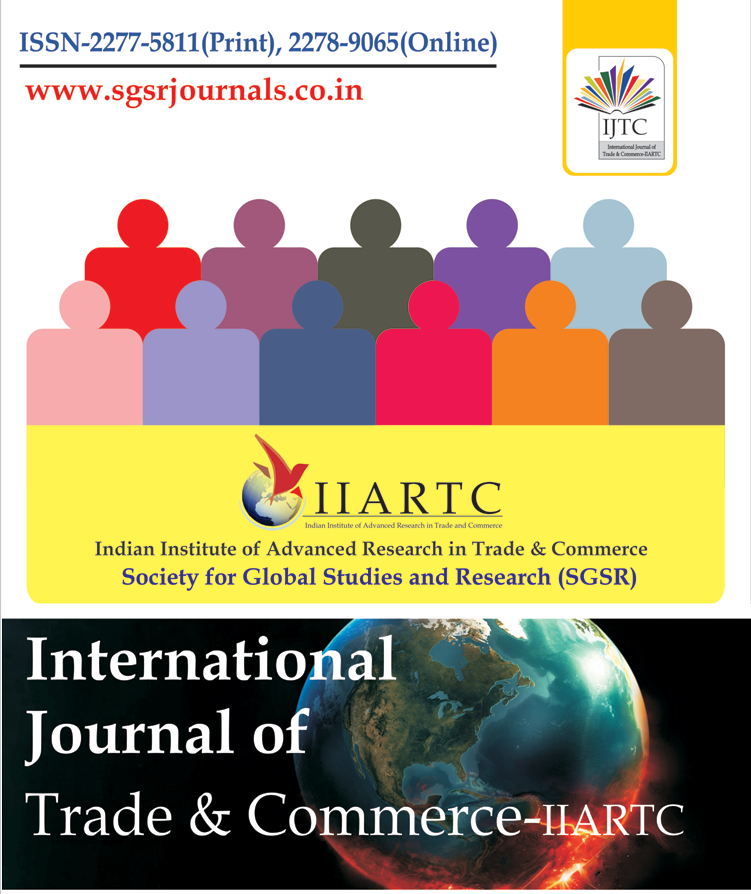Home ⇨ International Journal of Trade & Commerce-IIARTC

International Journal of Trade & Commerce-IIARTC
Impact Factor (IF):5.135 (COSMOS), IF:7.249 (ISRA), IF:3.721 (ISI)
ISSN:2277-5811 (P), ISSN:2278-9065 (O)
Frequency: Half Yearly
Ethical AI Integration and the Future of Employee Rights at Work
Artificial Intelligence (AI) has become increasingly central to both economic progress and modern business practices. While much public discussion has centered on the societal and ethical dimensions of AI—particularly in relation to data privacy and human rights—there has been comparatively less attention on how AI is transforming traditional workplace dynamics, especially in the area of occupational health and safety. Although concerns about human rights and gig economy conditions are well-documented, the potential implications of AI for day-to-day worker safety remain underexplored. This paper seeks to fill that gap by introducing a conceptual framework for an AI Work Health and Safety (WHS) Scorecard. This tool is designed to help identify and manage workplace risks linked to AI deployment. Drawing from a qualitative, practice-oriented research project involving organizations actively implementing AI, the study outlines a set of health and safety risks derived from aligning Australia’s AI Ethics Principles and Principles of Good Work Design with the AI Canvas—a tool traditionally used to evaluate AI’s commercial value. The study’s key innovation lies in a newly developed matrix that maps known and anticipated WHS and ethical risks across each stage of AI adoption, offering a structured approach to evaluating AI’s workplace impact.
Author:Kanika Maheshwari
Abstract:Artificial Intelligence (AI) has become increasingly central to both economic progress and modern business practices. While much public discussion has centered on the societal and ethical dimensions of AI—particularly in relation to data privacy and human rights—there has been comparatively less attention on how AI is transforming traditional workplace dynamics, especially in the area of occupational health and safety. Although concerns about human rights and gig economy conditions are well-documented, the potential implications of AI for day-to-day worker safety remain underexplored. This paper seeks to fill that gap by introducing a conceptual framework for an AI Work Health and Safety (WHS) Scorecard. This tool is designed to help identify and manage workplace risks linked to AI deployment. Drawing from a qualitative, practice-oriented research project involving organizations actively implementing AI, the study outlines a set of health and safety risks derived from aligning Australia’s AI Ethics Principles and Principles of Good Work Design with the AI Canvas—a tool traditionally used to evaluate AI’s commercial value. The study’s key innovation lies in a newly developed matrix that maps known and anticipated WHS and ethical risks across each stage of AI adoption, offering a structured approach to evaluating AI’s workplace impact.




